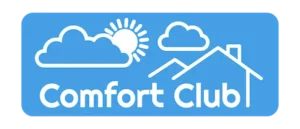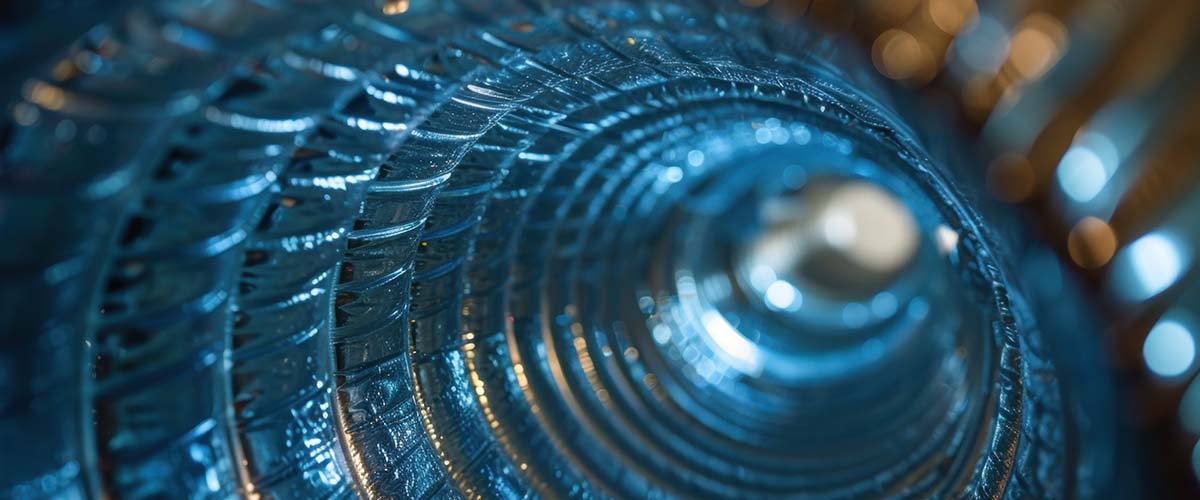Let me tell you something that might surprise you: the air ducts in your home are working harder than you realize. After 20+ years in the HVAC business here in Covington, I’ve crawled through thousands of duct systems, and I can tell you that most homeowners don’t give their air ducts a second thought until something goes wrong.
Think of your air ducts like the arteries of your home’s HVAC system. Just as your arteries carry blood throughout your body, your ducts carry conditioned air to every room. And just like arteries, when they get clogged or damaged, the whole system suffers. I’ve seen firsthand how neglected ductwork can turn a perfectly good HVAC system into an energy-wasting, allergy-triggering nightmare.
Here’s what really gets me: according to Energy Star, duct systems can lose 20-30% of conditioned air due to leaks, holes, and poorly connected ducts. That means for every dollar you spend cooling or heating your home, up to 30 cents could be escaping through gaps in your ductwork. In Georgia’s humid climate, where air conditioning can account for 40-50% of your energy use, that’s money literally vanishing into thin air.
The Hidden World Inside Your Ducts
You’d be amazed at what I find when I open up a duct system that hasn’t been cleaned in years. It’s like an archaeological dig sometimes. I’ve pulled out everything from children’s toys to decades-old construction debris. But the real concern isn’t the occasional lost action figure – it’s the accumulation of dust, pollen, pet dander, and sometimes even mold that builds up over time.
Picture your ducts as a highway system for air. Now imagine that highway getting narrower and narrower as debris builds up along the sides. Your HVAC system has to work harder to push air through these restricted passages, just like trying to breathe through a straw instead of normally. This extra strain doesn’t just increase your energy bills; it shortens the life of your equipment.
I remember one home in Covington where the homeowner complained about weak airflow in the master bedroom. When I inspected the ducts, I found nearly two inches of dust buildup in some sections. After cleaning, the airflow improved so dramatically that they had to adjust their dampers because the room was getting too cold! That’s the difference proper duct cleaning can make, and you can find details on air duct and vent cleaning services to understand the complete process.
The health implications are equally important. Every time your system kicks on, it’s circulating whatever’s in those ducts throughout your home. For families with allergies or respiratory issues, dirty ducts can turn your sanctuary into a source of constant irritation.
Signs Your Ducts Are Crying for Help
Let me share the warning signs I look for when evaluating a duct system. First, if you notice dust accumulating around your vents faster than usual, that’s your ducts telling you they need attention. It’s like when your car starts making that funny noise – ignoring it won’t make it go away.
Uneven temperatures between rooms are another red flag. If your living room feels like a sauna while your bedroom is an icebox, you might have blockages or leaks in your ductwork. I’ve seen homes where one room was 10 degrees different from another, all because of duct issues.
Strange odors coming from your vents deserve immediate attention. That musty smell isn’t just unpleasant – it could indicate mold growth in your ducts. In Georgia’s humid climate, this is more common than you might think. I once serviced a home near Lake Sinclair where the homeowners thought they had a dead animal in their walls. Turned out to be mold in the ductwork creating that awful smell.
Higher energy bills without increased usage often point to duct problems. When your system has to run longer to maintain temperature, it’s usually fighting against leaks or restrictions. According to the Department of Energy, dirty filters alone can reduce efficiency by up to 15%, and that’s before considering duct issues.
The Professional Cleaning Process Explained
When my team arrives for a duct cleaning service, we don’t just hook up a vacuum and call it a day. Professional duct cleaning is a systematic process that requires specialized equipment and expertise. Let me walk you through what happens when we service your home.
First, we perform a thorough inspection using cameras to assess the condition of your ductwork. This helps us identify not just dirt buildup but also any damage, disconnections, or areas of concern. It’s like getting an X-ray before surgery – we need to know what we’re dealing with.
Next, we seal off your vents and create negative pressure throughout the duct system using powerful vacuum equipment. Think of it as turning your entire duct system into a giant vacuum cleaner. We then use specialized brushes and compressed air tools to dislodge debris from the duct walls, which gets sucked into our containment system.
The cleaning process typically takes 3-5 hours for an average home, depending on the size and condition of the system. We clean not just the ducts but also the air handler, blower motor, and coils. It’s comprehensive because partial cleaning is like washing only half your car – it defeats the purpose.
After cleaning, we often apply antimicrobial treatments to prevent future mold growth, especially important in our humid Georgia climate. We’ll also check for and seal minor leaks, though major duct repairs might require additional service.
Maximizing Your Investment in Clean Ducts
Getting your ducts cleaned is just the beginning. To maximize the benefits and extend the time between cleanings, there are several things you can do. First and foremost, change your filters regularly. I can’t stress this enough – a clean filter is your first line of defense against duct contamination.
Consider upgrading to higher-quality filters, but be careful not to go overboard. Some high-MERV filters can restrict airflow if your system wasn’t designed for them. It’s like putting racing tires on a family sedan – not always the best match. I recommend MERV 8-11 filters for most residential systems.
Keep your vents clear and open. I see too many homes where furniture blocks vents or homeowners close vents in unused rooms thinking they’re saving energy. This actually creates pressure imbalances that can increase duct leakage and reduce efficiency.
Schedule regular HVAC maintenance. The Department of Energy recommends annual service, and I couldn’t agree more. During these visits, we can spot developing duct issues before they become major problems. It’s preventive medicine for your HVAC system.
Consider having your ducts sealed if we find significant leakage during cleaning. Aeroseal technology can reduce duct leakage by up to 90%, dramatically improving efficiency and comfort. I’ve seen this service pay for itself in energy savings within two years.
Frequently Asked Questions
How often should I’ve my air ducts cleaned?
For most homes, I recommend professional duct cleaning every 3-5 years. However, if you’ve pets, allergies, or have recently completed renovations, you might need it more frequently. Homes with smokers or multiple pets often benefit from cleaning every 2-3 years.
Can I clean my air ducts myself?
While you can vacuum around your vents and change filters yourself, professional duct cleaning requires specialized equipment that can cost thousands of dollars. DIY attempts often push debris deeper into the system rather than removing it. It’s like trying to detail your car engine with a garden hose – you need the right tools.
How much does professional duct cleaning cost?
In the Covington area, professional duct cleaning usually starts at a few hundred dollars, with final costs depending on home size, contamination levels, and accessibility. Be cautious of suspiciously cheap offers — quality service takes time and proper tools.
Will duct cleaning reduce my allergies?
Many of my customers report improvement in allergy symptoms after duct cleaning, especially when combined with ongoing filter maintenance. While I can’t make medical claims, removing allergens like dust, pollen, and pet dander from your duct system certainly can’t hurt.
How do I know if a duct cleaning company is reputable?
Look for companies certified by NADCA (National Air Duct Cleaners Association), check references, and ask about their process and equipment. Legitimate companies will provide before-and-after photos and won’t use high-pressure sales tactics. We’ve been serving Central Georgia for over two decades because we do the job right.
Can duct cleaning damage my HVAC system?
When performed by trained professionals using proper equipment, duct cleaning is safe. However, inexperienced technicians can damage flexible ductwork or disconnect joints. That’s why choosing an experienced HVAC company matters – we understand these systems inside and out.
What’s the difference between duct cleaning and duct sealing?
Duct cleaning removes contaminants from inside your ducts, while duct sealing addresses leaks and gaps that waste energy. They’re complementary services – clean ducts work more efficiently, and sealed ducts stay cleaner longer. I often recommend both for maximum benefit.
Your air ducts are an essential but often forgotten component of your home comfort system. Regular professional cleaning, combined with proper maintenance, can improve your indoor air quality, reduce energy costs, and extend the life of your HVAC equipment. Don’t wait until problems develop – proactive duct maintenance is always more cost-effective than reactive repairs. Give your ducts the attention they deserve, and they’ll keep your home comfortable and efficient for years to come.



